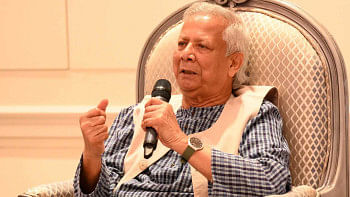River pollution in Bangladesh will be unbearable by 2050
Faced with the grim reality of more villagers pouring into the overcrowded cities, life will become even more difficult in Bangladesh's cities.
With studies firmly predicting a higher number of people in the cities of the world, Dhaka is set to suffer from an impending water crisis and consequently increasing pollution.
Dr Maryna Strokal, a researcher of Wageningen University, Netherlands, which combines the Dutch agricultural research department, observed that since sewerage management in South Asia leaves much to be desired, it naturally leads to further river pollution in Bangladesh, one of the most densely populated countries in the world.
If wastewater is not treated, the rivers will be polluted, she told The Daily Star. By 2050, the situation will be unbearable, she added.
The researcher said being downstream, Bangladesh naturally receives polluted water in many ways.
She indicated that with the global trend of increased urbanisation, issues like water treatment and river pollution will take centrestage by 2050.
Another report on groundwater management in coastal areas by Dr Thomas Himmelsbach from the German Federal Institute's Geosciences and Natural Resources division, said Bangladesh would be facing land subsidence, among other problems, because of its heavy dependence on groundwater.
The study also predicted water scarcity in Bangladesh coupled with the demographic change due to the slight sea level rise.
The German study also noted Bangladesh's overwhelming use of groundwater for irrigation remarking that it should rather be conserved for human consumption as it is always safe.
The obvious advice of using surface water for irrigation was also repeated by the study with a warning that continued exploitation of the resource might endanger Bangladesh in the near future.
The report said coastal regions host a large share of the world's population and economic activity, and a reliable water supply forms the basis for their future development where groundwater plays a major role.
The importance of groundwater is further strengthened by the observation that sea-level rise will lead to higher salinity which will only be exacerbated with more seawater intrusion or flooding.
Dr Himmelsbach recommends groundwater governance to minimise the threats to freshwater reserves in coastal aquifers.
But in the context of more urbanisation and more river pollution, the researcher from the Netherlands, Dr Strokal said, “I think a combination of green and grey technology can tackle the situation.”
Stockholm is hosting the world leaders, water experts, development professionals and CEOs at the World Water Week to discuss solutions to impending crises around the world. The 2018 World Water Week is organised with the theme of “Water, ecosystems and human development” in light of the extreme events from last year.

 For all latest news, follow The Daily Star's Google News channel.
For all latest news, follow The Daily Star's Google News channel. 



Comments